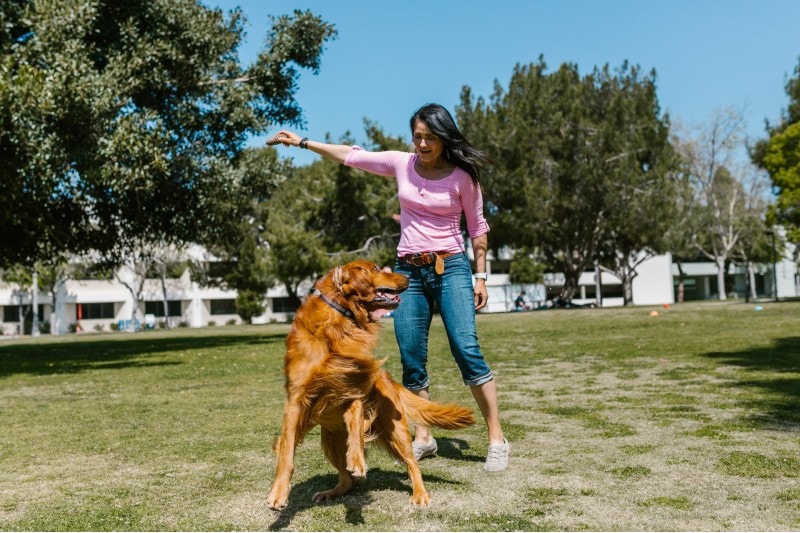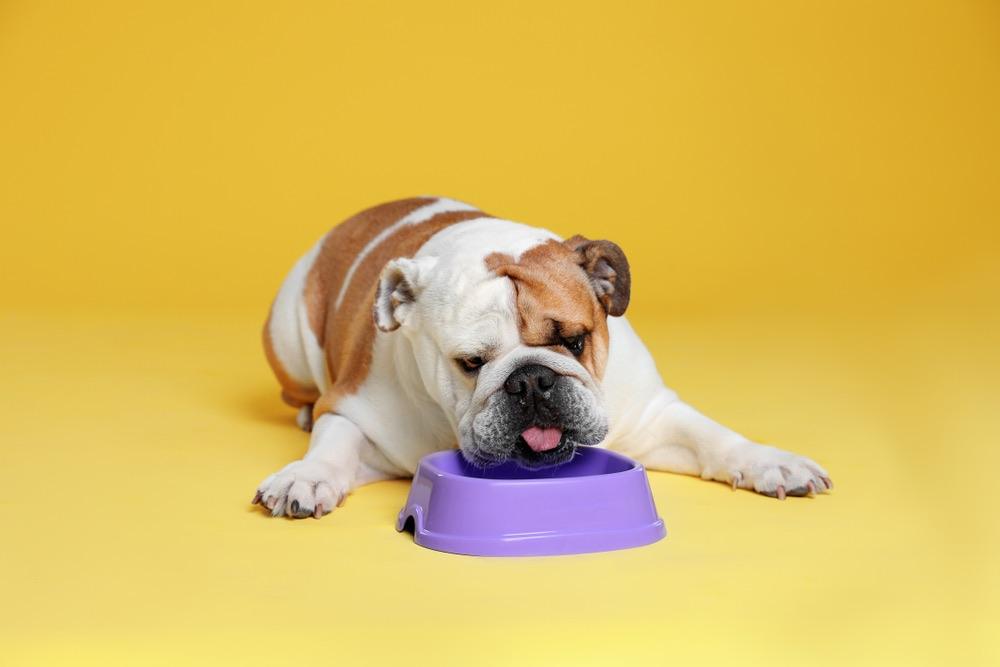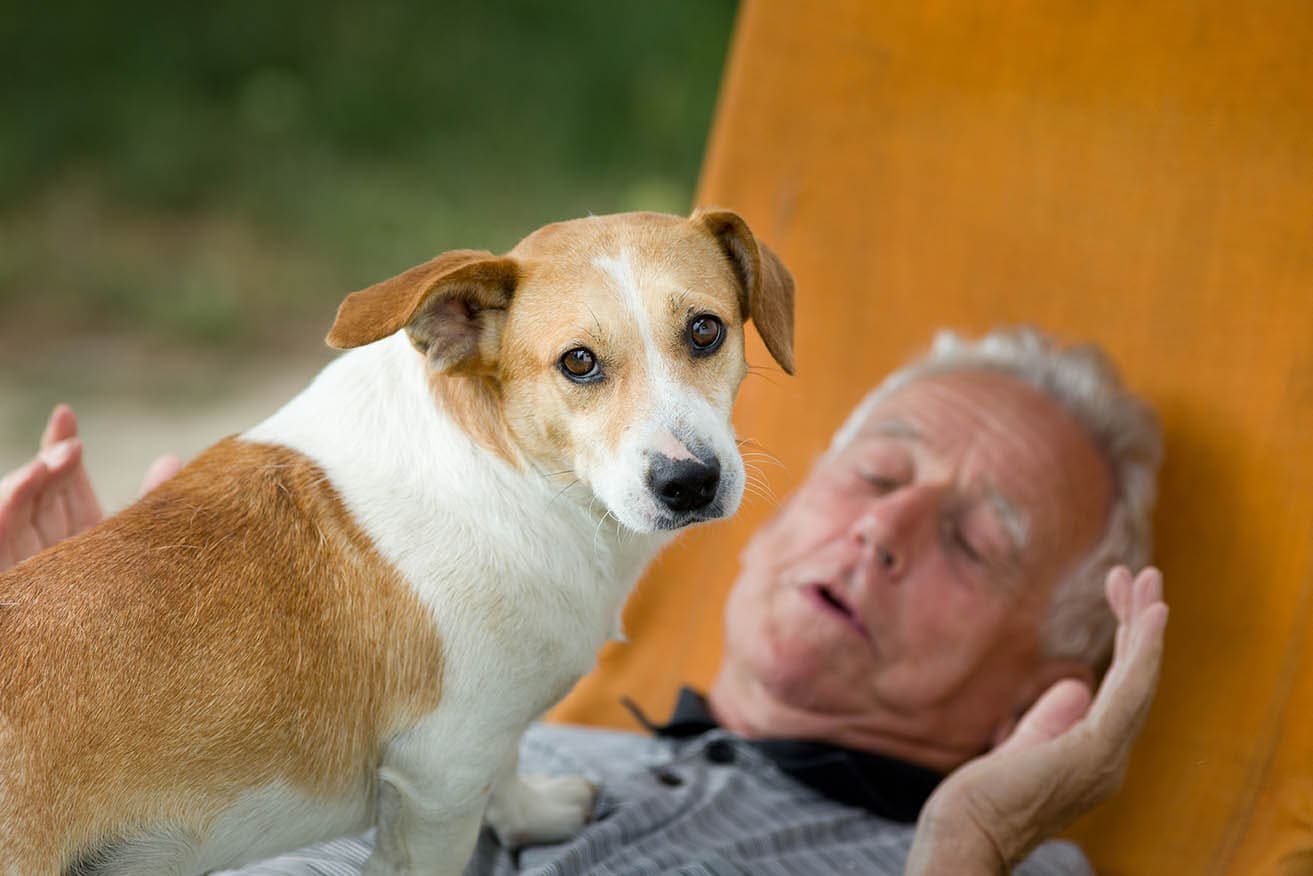Can Dogs Drink Wine? Is Wine Safe for Dogs?

Updated on
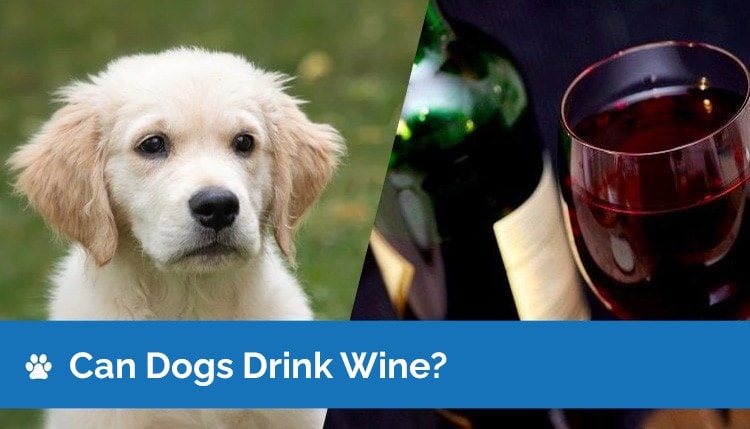
If you’ve ever sat down on the couch with a glass of wine only to be greeted by a set of puppy dog eyes staring back at you, you’ve probably wondered: Can dogs drink wine?
While it may be tempting to share your glass with your pup (especially if it’s not your first glass of the evening), you should never do so. Wine is one of the worst things that you can give your dog, as it can cause serious health problems, up to and including death.
All adult beverages are bad for dogs, but wine is especially toxic, and in the article below, we’ll explore why.
Is Wine Safe for Dogs?
Alcohol of any kind is extremely bad for dogs, and it can lead to fatal alcohol poisoning in sufficient amounts. It doesn’t take much either, as just a few tablespoons can trigger a potentially deadly reaction.

Not all alcoholic beverages are created equal. Your dog can get away with drinking light beer rather than whiskey, but both should be off-limits, of course. Of all the alcoholic beverages in the world, wine may be the worst for dogs.
That’s because while the alcohol is toxic enough on its own, wine has another extremely deadly ingredient inside grapes. Grape toxicity is a lethal condition that causes your dog’s kidneys to shut down, often within a few hours of ingesting the fruit.
The fact is that the grapes will likely get your dog long before the alcohol does. Your pup would need to take several swallows of wine to trigger alcohol poisoning, but fruit poisoning can happen after consuming very small quantities of grapes.
You should never give your dog alcohol of any kind, but take extra precautions to make sure they never have access to your wine glass.
What Happens If My Dog Drinks Wine?
The results you can expect from your dog drinking wine will vary depending on their size and the amount they consume, but in general, there are a few things you should watch out for.
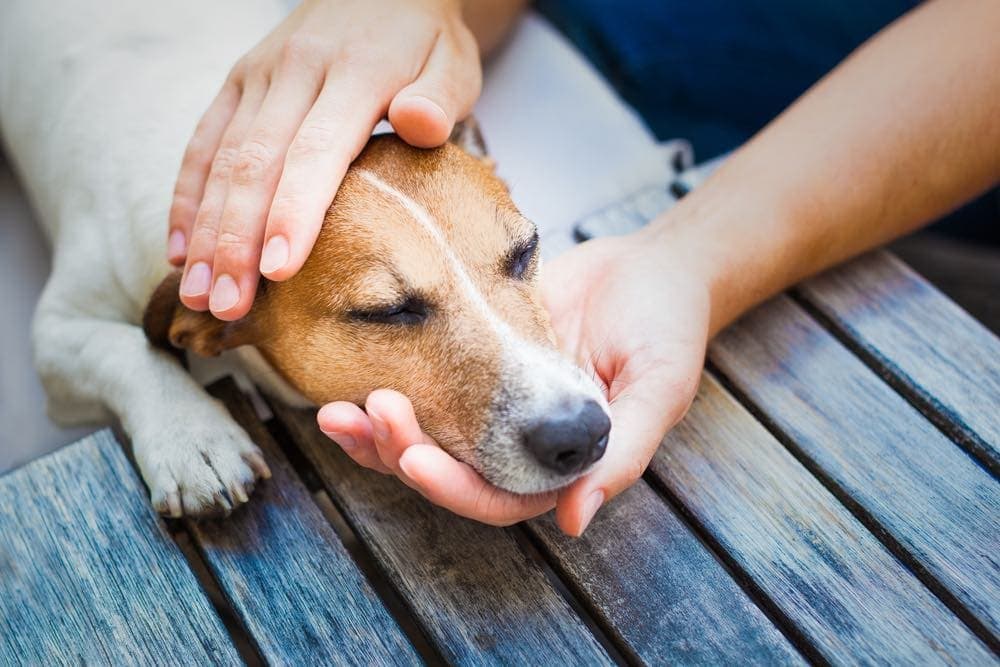
Below, we’ve included signs of alcohol poisoning and grape toxicity; these signs are serious and should be treated with the utmost urgency.
- Vomiting or retching
- Listlessness
- Diarrhea
- Loss of appetite
- Slowing of breath
- Failure to urinate
- Abdominal pain
- Increased drooling
- Lack of coordination
- Lethargy
Many of these are also signs of intoxication, and some people think that it’s funny when their dog seems drunk after consuming alcohol. It’s not; it’s actually abuse, and it can be fatal for your dog. Take it seriously, and get them the treatment they need as soon as possible.
My Dog Drank Some Wine. What Should I Do?
You should realize that, due to the grapes inside, there isn’t a “safe” amount of wine for your dog to drink. As a result, you should treat any wine consumption as an emergency.
The first thing you should do is call your vet or the local emergency clinic. Tell them what happened and that you’ll bring your dog in. This gives them time to prepare, and they can give you any last-minute advice as to what steps to take before you leave.
Once you get to the vet’s office, they’ll likely examine your dog immediately. If a lot of time hasn’t elapsed since the incident, your vet may try to induce vomiting or give your dog activated charcoal to absorb the wine.
Otherwise, your vet will keep your dog for a few days. During this time, they’ll perform blood tests to monitor kidney function, pump IVs through your dog’s system, and possibly even perform dialysis.
Your dog’s prognosis should be good if you get to the vet’s office in time. However, if you wait too long and the kidneys begin to shut down, euthanasia may be your only option.
How Do I Stop My Dog From Drinking Wine?
The easiest and most foolproof way to stop your dog from drinking wine is not to bring any home in the first place. If that’s out of the question, make certain that you never leave your wine glass unattended. Most dogs don’t care for the taste, but some will take a slurp or two if they sense an opportunity. Don’t leave your wine glass on a table or other surface they can reach.
Besides carelessness, spills are the most common way dogs come in contact with wine. Clean them up immediately, and keep your dog away from the mess until you’re done. This could involve putting them behind a dog gate or simply giving them the “leave it” command.

It’s unlikely that they’ll be able to get into unopened bottles of wine (and if they do, you probably have bigger problems on your hands than grape toxicity), so storing your wine shouldn’t be much of an issue. Just try to keep it where you’re unlikely to spill it.
After all, spilled wine can be hazardous to your dog’s kidneys and your mental health.
What About Wine Used for Cooking?
Most wine used in cooking evaporates during the cooking process, so it’s not nearly as dangerous. Still, it’s better not to take any chances, so we’d recommend not sharing food cooked in wine with your pup. They certainly don’t need it, and better options are available, like their kibble.
However, if your dog eats a little beef braised in wine, it’s unlikely to be fatal. You might still want to call poison control or your vet just to be safe.
So, What’s the Verdict? Can Dogs Drink Wine?
We would be hard-pressed to name a worse food or drink for dogs than wine. Not only is it filled with alcohol, which is toxic enough in its own right, but the grapes inside can be lethal to your dog in a matter of hours.
We understand that it can be tempting to share everything you have with your dog—just look at that face! Still, your glass of wine is one liquid that should forever remain off-limits to your pup.
- You Might Be Interested In: Can Dogs Eat Banana Peels?
Featured Image Credit: congerdesign, Pixabay



